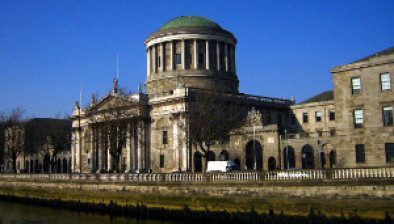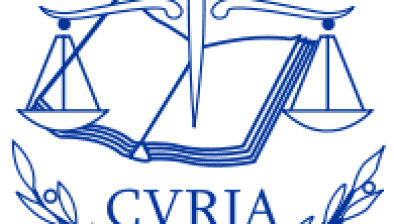High Court: Man committed to prison pending his extradition to USA to stand trial for ransomware conspiracy charges

The High Court has made an order committing Oleksi Oleksiyovych Lytvynenko to prison to await his extradition to stand trial for his part in a ransomware conspiracy.

About this case:
- Citation:[2025] IEHC 100
- Judgment:
- Court:High Court
- Judge:Mr Justice David Keane
Delivering judgment for the High Court, Mr Justice David Keane determined that the application met all of the proofs prescribed by s.29 of the Extradition Act 1965 (as amended) and that the respondent’s objections based upon violations of his rights and abuse of process did not warrant the refusal of the order sought.
Background
In June 2023, an extradition request was communicated by the Embassy of the USA in Dublin in respect of the respondent.
The extradition of the respondent, a Ukrainian national given temporary protection in Ireland under the International Protection Act 2015 (as amended) in light of the Russian invasion of Ukraine, was sought to facilitate his trial in the USA on charges arising from the alleged deployment of malicious ‘ransomware’ against a government entity and two businesses.
The conspiracy was alleged to have resulted in the payment of a combined ransom of approximately $634,000 in cryptocurrency.
The applicants brought an application pursuant to s.29 of the Extradition Act 1965 (as amended) seeking to obtain an order committing the respondent to prison to await the order of the Minister for his extradition.
The High Court
Mr Justice Keane considered that the court was required to be satisfied that the extradition of the respondent was duly requested, that Part II of the 1965 Act applies in relation to the USA, that the extradition of the respondent is not prohibited by Part II or by the relevant extradition provisions, and that the documents required to support a request for extradition under s.25 of the 1965 Act have been produced.
The court was satisfied that in accordance with s. 23(1)(a) and (2)(a) of the 1965 Act, the extradition request dated 8 June 2023 was duly communicated in writing by the Embassy of the USA in Dublin, as the diplomatic agent of the USA, to the minister for justice and that Part II of the 1965 Act applies in relation to the USA pursuant to the Extradition (United States of America) Order 2019 (S.I. No. 393 of 2019).
The court examined the documents produced in support of the application which set out inter alia that the respondent had been indicted by a federal grand jury in Tennessee for conspiring to violate the Computer Fraud and Abuse Act and to commit wire fraud by agreeing to infect victim’s computers and to defraud them with Conti ransomware, and then demanding victims to pay a cryptocurrency ransom in exchange for a decryption key and a promise not to publicise the breach of the victim’s networks.
The next affidavit of a Federal Bureau of Investigation (FBI) special agent set out inter alia that the FBI obtained a warrant to search the Google account of a person associated with an email address which had uploaded a malicious file to a counter-antivirus service for testing, who was identified as the respondent. The special agent described the contents of the respondent’s Google account as containing various hacking and ransomware tools and data belonging to Conti ransomware victims.
The affidavit explained that Google analytics data on the respondent’s account showed that he had searched for inter alia methods of thwarting Windows authentication and had watched YouTube videos on malware, hacking, Windows administration, building a remote access tool and penetration testing. Cryptocurrency tracing performed by the FBI on the publicly available blockchain had also indicated that the respondent received payments in Bitcoin from Conti conspirators during approximately the same period as the attacks on six of the victims whose data was found in the respondent’s Google Drive.
Mr Justice Keane was satisfied that the request was supported by the documentation furnished for the purposes of 25(1)(e) of the 1965 Act.
The judge then considered whether the extradition was not prohibited under Part II of the 1965 Act, noting that the basic conditions required are those of correspondence (“double criminality”) and “minimum gravity”.
As to correspondence, the court set out that under both s.10(1) and s.10(1A) of the 1965 Act, extradition can be granted only in respect of an offence punishable both under the laws of the requesting country and of the State.
The court explained that “an offence punishable under the laws of the State” means either an act that, if committed in the State on the day on which the request for extradition is made, would constitute an offence; or in the case of an offence under the law of the requesting country consisting of the commission of one or more acts including any acts committed in the State, such one or more acts being acts that, if committed in the State on the day on which the act concerned was committed or alleged to have been committed would constitute an offence.
As to minimum gravity, Mr Justice Keane outlined that pursuant to s.10(1) of the 1865 Act, the offence must be one punishable under the laws of the requesting country and of the State by imprisonment for a period of at least one year or by a more severe penalty, but that this was subject to s.10(1A) which provides that extradition to a Convention Country is subject to the less stringent requirement that the offence is subject to the same minimum punishment of imprisonment for at least one year under the laws of the requesting country but need only be punishable under the laws of the State by imprisonment for a maximum period of no less than six months or by a more severe penalty.
The court was ultimately satisfied on the evidence that the requirements of correspondence and minimum gravity had been met and that the extradition of the respondent was not prohibited by Part II of the 1965 Act or by the relevant extradition provisions.
Mr Justice Keane heard objections from the respondent to the effect that his extradition would breach his rights to inter alia family life and to bodily integrity pursuant to the Constitution and the European Convention on Human Rights (ECHR) and would expose him to a risk of inhuman or degrading treatment by his imprisonment in the USA or by his refoulement to Ukraine.
The respondent also made allegations of abuse of process, including that he had been unlawfully targeted by both the US and the Irish authorities and unlawfully subjected to the interception and retention of his private correspondence while in custody.
Noting that the “making of an extradition arrangement presupposes that the Government and the Oireachtas are satisfied, amongst other things, that a person being extradited to another State with which Ireland has such an arrangement will not have his constitutional (or ECHR) rights impaired”, Mr Justice Keane considered the respondent’s objections in turn but was not satisfied that they warranted refusal of the order sought where they did not meet the required thresholds and/or where there was an insufficient evidential basis to support them.
Conclusion
Accordingly, the High Court made an order pursuant to s.29 of the 1965 Act committing the respondent to prison to await the making of an order for his extradition.
The Attorney General v Oleksi Oleksiyovych Lytvynenko [2025] IEHC 100












